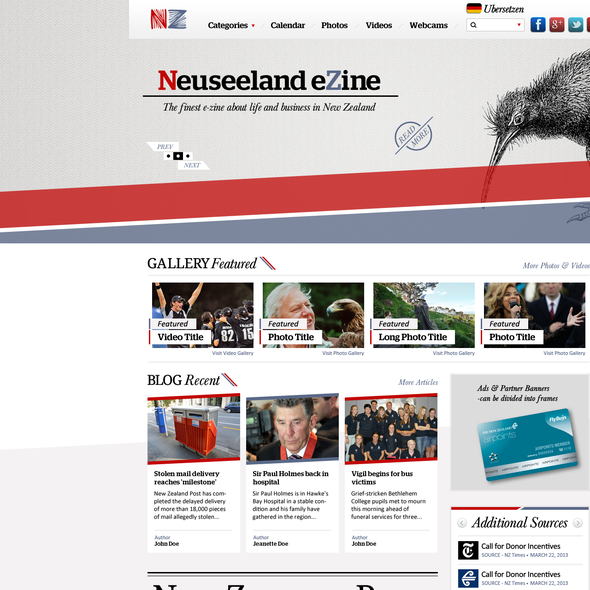9 Simple Techniques For News Websites
9 Simple Techniques For News Websites
Blog Article
The Best Guide To News Websites
Table of Contents8 Easy Facts About News Websites DescribedThe smart Trick of News Websites That Nobody is Talking AboutThe 2-Minute Rule for News WebsitesNews Websites - The FactsFascination About News Websites
It was down in the UK and Brazil however up some other nations, such as Greece, Bulgaria, and Poland (News Websites). This year, for the very first time, we asked concerning the various ways that people stay clear of the information and found that around half of avoiders (53%) were attempting to do so in a broad-brush or routine means for example, by shutting off the radio when the information came on, or by scrolling past the news in social media sitese.g. scrolling past news, altering channels when information comes on. of avoiders check sources less typically. e.g. restriction to specific times of day, transforming off alerts, etc. of avoiders stay clear of some subjects. e.g. subjects that bring down state of mind or increase anxiousness. You stated that you try to actively prevent news.

I'm probably selecting to find out more light-hearted stories than I utilized to right now. M, 51, UK Switching my back on information is the only way I feel I can cope in some cases. I have to knowingly make the effort to avert for the benefit of my own mental wellness.
The Single Strategy To Use For News Websites
Selective evasion of Ukraine information was highest possible in much of the countries closest to the dispute, strengthening findings from our additional study last year, quickly after the war had actually begun. Our information may not suggest a lack of passion in Ukraine from nearby nations but rather a wish to handle time or shield mental health and wellness from the really genuine scaries of battle.
Comparing Finland with a politically polarised nation such as the United States (see following graph) that is much less affected by the war, we find a very various pattern of topic evasion. In the United States, we discover that consumers are most likely to prevent subjects such as national politics and social justice, where arguments over problems such as sex, sexuality, and race have come to be extremely politicised.
American national politics are rather poisonous nowadays. I discover sometimes that I have to separate from tales that just make me angry. F, 61, USA For some individuals, bitter and dissentious political discussions are a reason to shut off information completely, but for some political partisans, evasion check my site is typically concerning obstructing out perspectives you do not intend to listen to.

How News Websites can Save You Time, Stress, and Money.
Some are seeking to make information a lot more obtainable for hard-to-reach teams, broadening the information agenda, commissioning more motivating or positive information, or embracing useful or solutions journalism that give individuals a sense of hope or individual firm. In our survey this year, we asked respondents concerning their passion in these different approaches.
This describes why tales like Ukraine or national politics carry out well with information regulars yet can at the exact same time turn less interested individuals away (News Websites). Careful avoiders are much less interested in all sorts of news than non-avoiders yet in family member terms they do appear to be more thinking about favorable or solutions-based news

News Websites Fundamentals Explained
2023). This may be true in the minute, however over time it seems to be leaving lots of people vacant and less pleased, which may be weakening our link with and count on the news. Throughout markets, total count on in news (40%) and trust in the sources individuals use themselves (46%) are down by a further 2 portion points this year.
Certainly, via the rear-view mirror, the COVID-19 trust bump is clearly noticeable in the complying with graph, though the direction click here for info of travel later on has useful link actually been mixed. In some cases (e.g. Finland), the count on increase has been maintained, while in others the upturn looks more like a spot in a tale of continued lasting decline.
Several of the greatest reported levels of media criticism are located in countries with greatest levels of mistrust, such as Greece, the Philippines, the United States, France, and the United Kingdom. The most affordable levels of media criticism are frequently in those with higher levels of count on, such as Finland, Norway, Denmark, and Japan.
The 15-Second Trick For News Websites
This year we asked respondents regarding their preferences for message, sound and video when taking in news online. Typically, we discover that the bulk still choose to read the news (57%), instead of watch (30%) or listen to it (13%), yet younger people (under-35s) are most likely to pay attention (17%) than older teams.
Behind the standards we discover considerable and unexpected nation distinctions. In markets with a strong reading practice, such as Finland and the United Kingdom, around 8 in 10 still prefer to review on-line information, but in India and Thailand, around four in ten (40%) claim they choose to view information online, and in the Philippines that proportion mores than fifty percent (52%).
Report this page